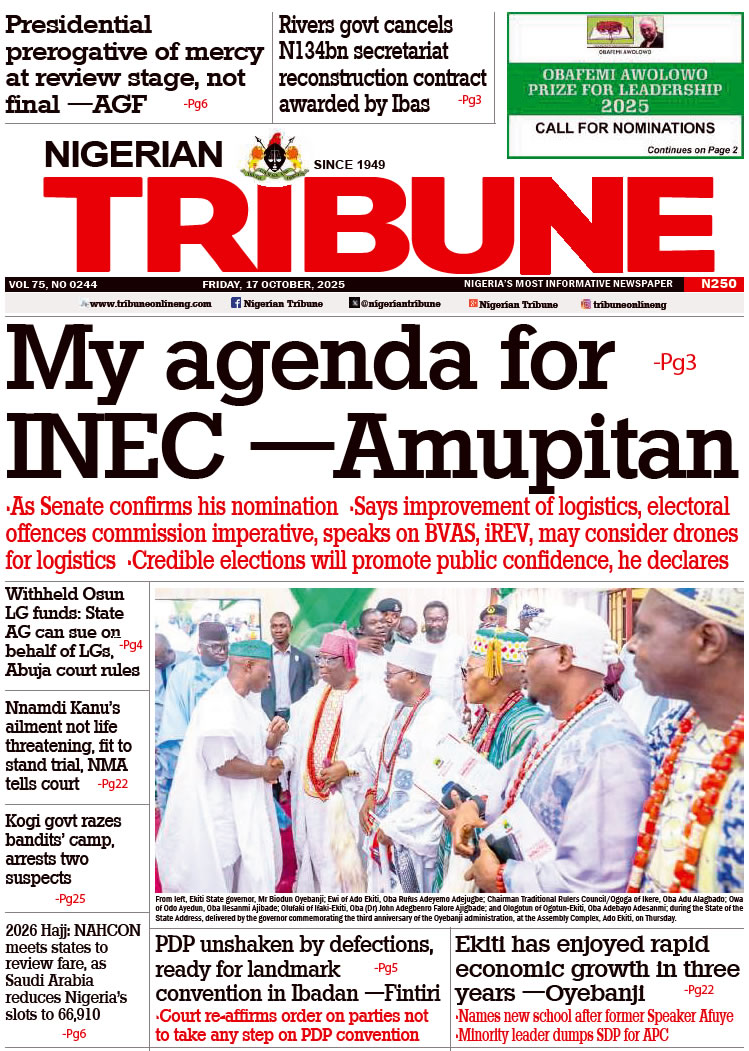After Beyonce (not real name) lost her father two years ago, life became financially difficult for her even though Beyonce’s father was a relatively wealthy man, leaving behind houses, land and money in the bank.
Her father, like most men in this conservative country who are superstitious about writing a Will, died intestate so the duty of sharing out his estate fell on his children.
Despite being the first child, Beyonce, 29, and her five other sisters received nothing – everything went to the three men in the family as is the custom among this particular ethnic group in Nigeria.
“The men [her brothers] claimed all that our father had.
“They told us [women] that we were going to get married into another person’s home so we didn’t have to inherit anything from our father. Because that’s the tradition, we didn’t fight with them,” she narrated.
As a result, she could no longer afford to go to university and now runs a small business selling cooked noodles in the town.
“Women are still routinely being cut out of their parents’ inheritance in most parts of Nigeria, despite a Supreme Court ruling that it is discriminatory.
“Here the men take it all, she noted.”
Not far from where she lives, she met Fossil (not real name), the first child in a family of four.
When her father died, her only brother – the last child in the family – inherited the father’s entire estate, including the family house.
“So many people got involved before my brother gave me one room [in the family house] and he said I should not be locking the door.
“There was a time I was broke. My brother rented out some of the rooms and did not give me a dime from it,” she said.
Her brother, Givenchy (not real name), a musician who now runs a poultry business in the compound he inherited, said he had done nothing wrong and had only followed the tradition of his people.
Givenchy largely rebuilt this house he inherited from his father while his sister got nothing “Here the men take it all, they give to their women whatever they wish,” she said.
“This fighting for inheritance in your father’s house is just like fighting for [a] double portion, because when you [women] get inheritance from your father’s house, definitely you will still get from your husband’s house,” he said.
‘You’re saying girls do not belong.’ There are many of such sad stories.
The Nigerian constitution prohibits such gender-based discrimination but ethnic groups tribes still stick to the traditions.
In most families, property left behind by fathers is divided among male children – the size of each person’s share is determined by age so older siblings tend to get more – and women are excluded. In some cases, where shares are given to women, they are limited to things owned by their mothers and cannot inherit lands and houses.
Many tribes believe that ancestral family land should not be inherited by women as they are expected to leave the community when they get married, while men remain to carry on the family heritage. They say “Men are the custodians of the land and the culture,”. There is also the fear of husbands gaining access to a family’s land through marriage if women are allowed to own land.
Family houses are seen as the exclusive inheritance of male children in order of seniority.
“The cultural norms and cultural inhibitions that enable these harmful practices are still very much alive in the communities.
“If you are telling a girl that she cannot share of her parents’ estate, it means you are telling her that she does not belong there.”
Though disinherited women have the option of going to court, the expensive legal process can last decades and might create family rifts, so they approach local chiefs – who are usually men – and relatives to seek redress which they rarely get.
There are still many practices out there that still disinherit women from their father’s or husband’s property. {bbc.com}
Another interesting story with a twist is the story of the “Daughters of Zelophehad” of the tribe of Israel; where the issue of inheritance also came up. The Daughters of Zelophehad were five sisters – Mahlah, Noa, Hoglah, Milcah, and Tirzah whose father died intestate. They appealed against an age long custom of a limited right of Israelite women to inherit land and properties.
The daughters came forward to appeal, stating their case in front of the sacred tent of meeting in the presence of leaders, and the whole community. They argued that their father’s name (lineage) should not be cut off from his clan just because he had no son and that they should be permitted to inherit his land portion in order to avoid this potential injustice to their father’s name (and property). The story presumes a culture that recognizes a connection between landholding and preservation of a male name in a family lineage.
After much deliberation, the elders then agreed and concluded on endorsing the regulation for order of inheritance: “when there are no sons, daughters shall have first inheritance rights, followed by other male relatives in a set sequence” And Zelophehad’s daughters received a portion in the holdings of Manasseh, granted their father’s hereditary holding. {You can read more from the book of Numbers}. So, when things happen like this in our time, how do we handle it?
How are issues around women inheritance treated in your community? Please share with me.
Omolara Garuba LLB, BL, PMP
Founder, Global Mentoring Club [Young Lawyers’ Hub]
talktolaragaruba@gmail.com
YOU SHOULD NOT MISS THESE HEADLINES FROM NIGERIAN TRIBUNE
Lagos Is Second Least Liveable City In The World For 2021
Lagos is the second least liveable city in the world for the year 2021. This is according to the most recent annual ranking put together by the Economist Intelligence Unit (EIU)…
CLAIM 1: A Twitter user claims UNICEF said any efforts to block children from accessing pornography might infringe their human rights.
VERDICT: MISLEADING!
WATCH TOP VIDEOS FROM NIGERIAN TRIBUNE TV
- Relationship Hangout: Public vs Private Proposals – Which Truly Wins in Love?
- “No” Is a Complete Sentence: Why You Should Stop Feeling Guilty
- Relationship Hangout: Friendship Talk 2025 – How to Be a Good Friend & Big Questions on Friendship
- Police Overpower Armed Robbers in Ibadan After Fierce Struggle





